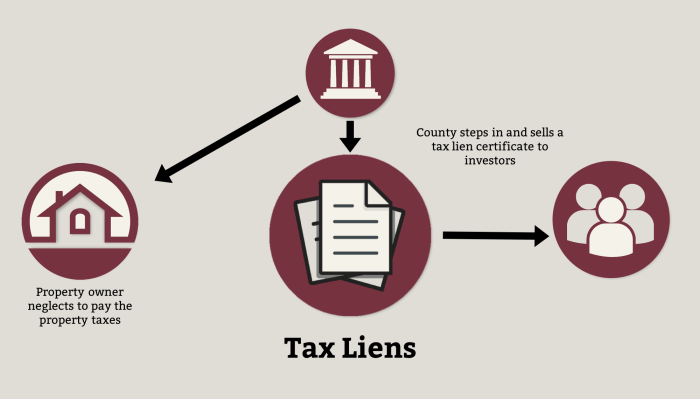Section 8 Investment Properties A Guide for Landlords

Section 8 investment properties present a unique opportunity for landlords to contribute to affordable housing while potentially generating steady income. The Section 8 program, administered by the U.S. Department of Housing and Urban Development (HUD), provides rental subsidies to low-income families, making housing more accessible. For landlords, participating in the program can offer a consistent stream of tenants and guaranteed rent payments. However, navigating the intricacies of Section 8 requires careful consideration of legal requirements, tenant screening, and property management practices.
This guide delves into the multifaceted world of Section 8 investment properties, exploring the potential benefits and challenges, providing insights into finding and acquiring suitable properties, and offering practical advice for managing these unique rental units.
Understanding Section 8 Housing

Section 8 housing is a federal program that helps low-income families, the elderly, and people with disabilities afford safe and decent housing. It is administered by the U.S. Department of Housing and Urban Development (HUD) and is available in all 50 states, the District of Columbia, and U.S. territories.
The program provides rental assistance to eligible households, allowing them to pay a portion of their income toward rent, with the government covering the remaining cost. Section 8 is a vital resource for many individuals and families who would otherwise struggle to find affordable housing.
Eligibility Criteria for Section 8 Assistance
To qualify for Section 8 housing assistance, tenants must meet specific eligibility criteria. These criteria are designed to ensure that the program serves those who need it most.
The following factors are considered when determining eligibility:
- Income: Applicants must meet income limits based on family size and location. These limits vary by state and county.
- Citizenship: Applicants must be U.S. citizens or legal residents.
- Criminal History: Applicants with certain criminal convictions may be ineligible.
- Housing History: Applicants with a history of evictions or other housing-related issues may be ineligible.
- Disability: Applicants with disabilities may be prioritized for assistance.
Landlord Participation in Section 8 Programs
Landlords play a crucial role in the success of Section 8 programs. By participating in the program, landlords agree to rent their units to eligible tenants who receive rental assistance.
Landlords who participate in Section 8 programs receive several benefits, including:
- Guaranteed Rent Payments: HUD provides landlords with a guaranteed monthly rent payment, ensuring that they receive timely payments, even if the tenant falls behind.
- Reduced Risk of Eviction: Tenants receiving Section 8 assistance are more likely to stay in their units, reducing the risk of eviction for landlords.
- Access to a Larger Pool of Tenants: By participating in Section 8, landlords can tap into a larger pool of potential tenants, increasing their chances of finding suitable renters.
Managing Section 8 Properties: Section 8 Investment Properties

Managing Section 8 properties comes with its own set of unique challenges and considerations. You’ll need to navigate the complexities of working with the Housing Authority, ensure compliance with program guidelines, and manage a diverse tenant population.
Tenant Screening and Selection
Tenant screening and selection for Section 8 properties is crucial for ensuring the success of your investment. The process involves a thorough review of potential tenants’ backgrounds, including their credit history, rental history, and criminal record.
- Working with the Housing Authority: The Housing Authority plays a key role in the tenant screening process. They conduct their own background checks and determine a tenant’s eligibility for the Section 8 program. You’ll need to cooperate with the Housing Authority and follow their guidelines for tenant selection.
- Understanding Eligibility Criteria: It’s essential to understand the specific eligibility criteria set by the Housing Authority. This includes factors like income limits, family size, and criminal history. Ensure you’re only considering tenants who meet these requirements.
- Verifying Information: Don’t rely solely on the Housing Authority’s assessment. Conduct your own independent verification of the tenant’s information, including their income, employment, and rental history. This will help you make informed decisions about tenant selection.
- Prioritizing Responsible Tenants: While the Housing Authority ensures basic eligibility, it’s important to prioritize responsible tenants with a good track record. Look for tenants who demonstrate a history of paying rent on time and maintaining their previous properties.
Communication with Tenants and the Housing Authority
Maintaining open and effective communication with both tenants and the Housing Authority is critical for managing Section 8 properties.
- Regular Communication with Tenants: Establish clear communication channels with your tenants. This includes regular contact for rent collection, maintenance requests, and any other issues that may arise.
- Prompt Response to Requests: Respond promptly to tenant requests, whether it’s for maintenance repairs or addressing concerns. A timely response can help prevent issues from escalating and improve tenant satisfaction.
- Transparency with the Housing Authority: Keep the Housing Authority informed of any significant developments, such as tenant issues, maintenance needs, or changes in occupancy. This ensures compliance with program requirements and fosters a positive working relationship.
- Documenting Interactions: Maintain detailed records of all communication with tenants and the Housing Authority. This documentation can be invaluable in resolving disputes or addressing any potential legal issues.
Case Studies and Examples

This section delves into real-world examples of successful Section 8 property investments, highlighting the challenges faced by property owners and their solutions. It also explores the long-term financial benefits of investing in Section 8 properties.
Successful Section 8 Property Investments
Successful Section 8 property investments are characterized by careful planning, diligent management, and a long-term perspective. One such example is a four-unit apartment building in Chicago, owned by a small-scale investor. The investor, recognizing the demand for affordable housing in the area, strategically acquired the property and converted it to Section 8 housing. By adhering to strict maintenance standards, fostering a positive tenant-landlord relationship, and effectively managing the property, the investor achieved a consistent rental income stream and experienced steady appreciation in the property value.
Challenges Faced by Section 8 Property Owners, Section 8 investment properties
Section 8 property ownership comes with unique challenges. One common challenge is navigating the complexities of the Section 8 program, including understanding the eligibility criteria, rent payment procedures, and tenant screening processes. Another challenge is dealing with potential tenant issues, such as rent delinquency or property damage.
Solutions to Challenges
To overcome these challenges, Section 8 property owners can implement effective strategies. This includes thorough tenant screening, establishing clear lease agreements, maintaining regular communication with tenants, and promptly addressing maintenance requests. Additionally, property owners can leverage resources available through local housing authorities and organizations that specialize in Section 8 property management.
Long-Term Financial Benefits
Investing in Section 8 properties offers several long-term financial benefits. The guaranteed rental income stream provided by the Section 8 program ensures a stable cash flow. Additionally, the government-backed subsidies help mitigate the risk of tenant delinquency. Moreover, Section 8 properties often experience appreciation in value due to the consistent demand for affordable housing.
Examples of Long-Term Financial Benefits
For instance, a property owner in Atlanta who converted a single-family home to Section 8 housing experienced a steady increase in property value over the years. This appreciation was driven by the stable rental income and the growing demand for affordable housing in the area. Additionally, the Section 8 subsidies provided a reliable income stream, ensuring the property owner could consistently meet their financial obligations.
Investing in Section 8 properties can be a rewarding endeavor for landlords seeking to make a social impact while building a stable rental portfolio. By understanding the program’s intricacies, carefully selecting tenants, and diligently managing properties, landlords can navigate the unique aspects of Section 8 ownership and potentially reap the financial and social rewards. While challenges exist, the potential benefits of providing affordable housing and generating steady income make Section 8 investment properties an attractive option for those seeking to diversify their real estate holdings.
Common Queries
What are the specific benefits of investing in Section 8 properties?
Section 8 properties offer benefits like guaranteed rent payments, a consistent stream of tenants, and the potential for tax incentives. Additionally, you contribute to affordable housing and can potentially earn a higher return on investment than traditional rentals.
How do I find Section 8 properties?
You can find Section 8 properties through local Housing Authorities, real estate agents specializing in Section 8 properties, and online platforms that list Section 8-approved properties.
What are the legal requirements for owning a Section 8 property?
Landlords must adhere to specific legal requirements, including fair housing laws, HUD guidelines, and local ordinances. It’s crucial to thoroughly understand and comply with these regulations to avoid legal issues.
What are the challenges of managing Section 8 properties?
Managing Section 8 properties can pose unique challenges, such as stricter tenant screening requirements, increased paperwork, and potential delays in rent payments. Effective communication with the Housing Authority and tenants is vital.
Section 8 investment properties can be a lucrative venture, but navigating the regulations and tenant screening processes requires a keen understanding of the market. If you’re looking to enhance your business acumen and gain the necessary skills to succeed in this niche, consider pursuing an UF Online MBA. The program offers valuable insights into real estate management, financial analysis, and legal compliance, equipping you to make informed decisions and manage your Section 8 investments effectively.
Section 8 investment properties can be a good source of steady income, but it’s important to understand the rules and regulations. To make the most of this type of investment, you might want to consider gaining expertise in data analysis and predictive modeling, which can be achieved through a masters in AI and machine learning online. This knowledge can help you identify promising properties, assess tenant risk, and optimize your rental strategies.
Section 8 investment properties can be a lucrative venture, but they often require a deep understanding of regulations and tenant management. A strong business acumen is crucial, and pursuing an university of chicago online mba can equip you with the necessary skills to navigate the complexities of this market. With the right education and strategy, you can successfully leverage Section 8 properties for long-term financial gain.









